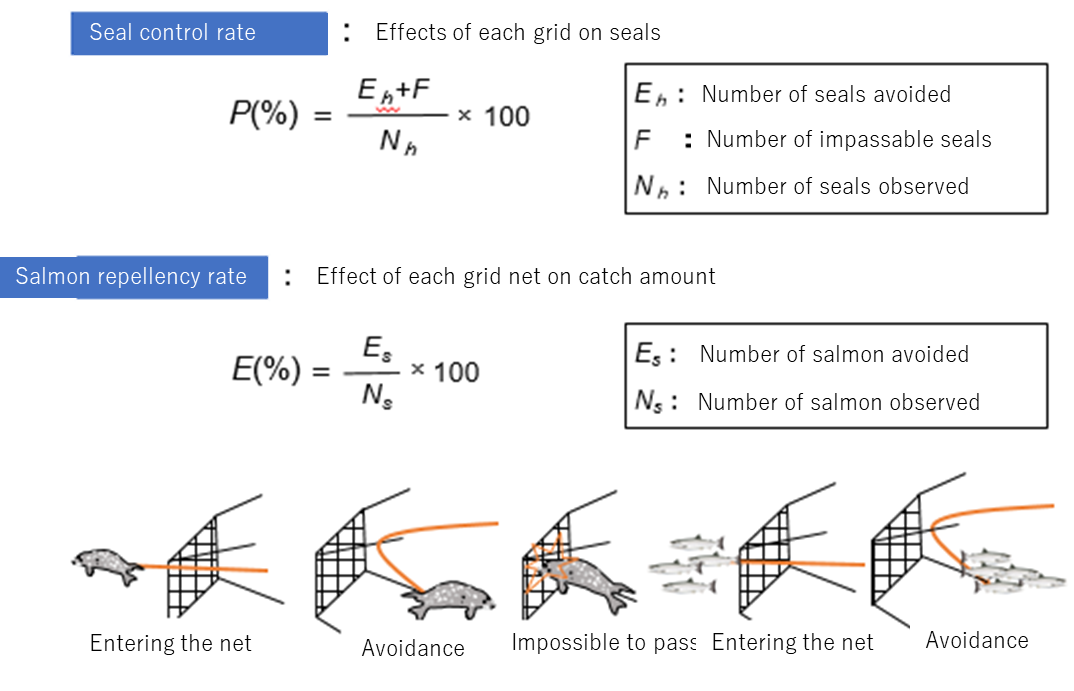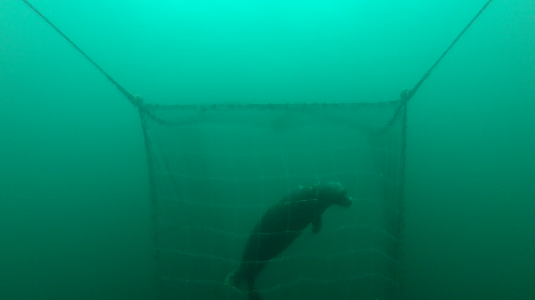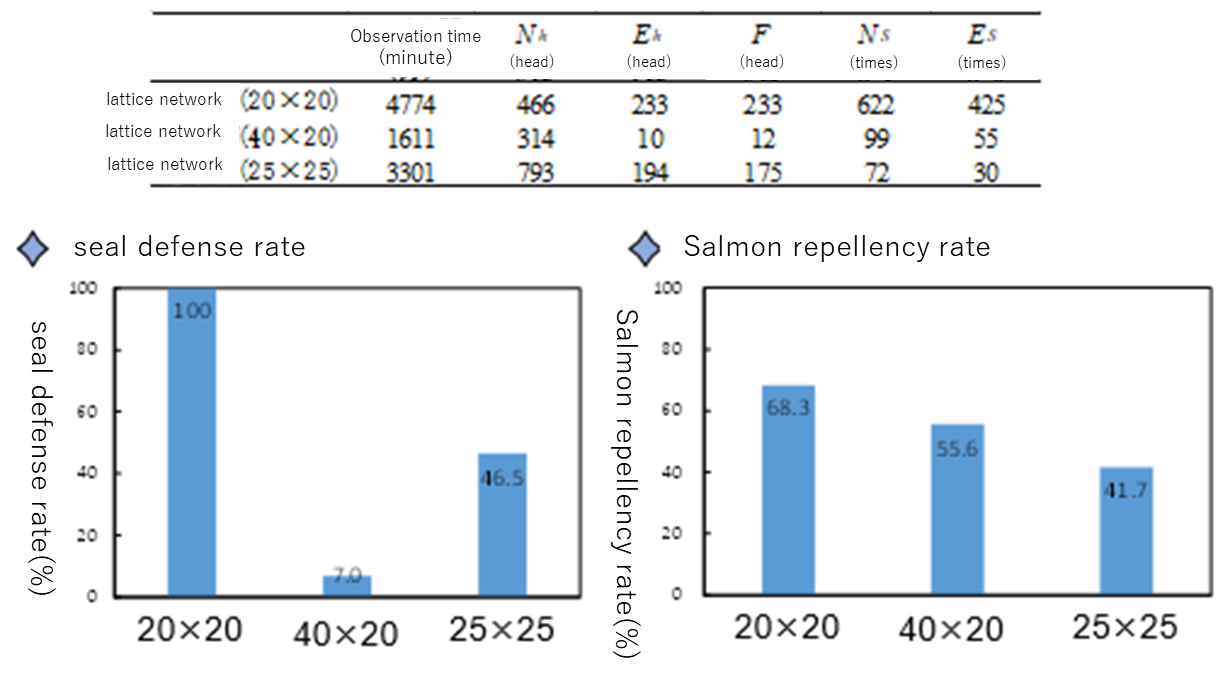Preventing seals from invading (preventing bycatch) by improving set nets
- Method
Grid net (rope grid)
A 2.25 m x 2.25 m grid was made from high-strength polyethylene (Dyneema) rope. The mesh sizes of the grid were 20 x 20 cm, 40 x 20 cm, and 25 x 25 cm.
Experimental Methods
The set net employed in the experiment was a two-stage box type net. The size of box net was 30 m long, 12 m wide, and 12 m high, and the overhead net was attached to the box net to prevent the fish escaping when the net was on the surface of the water. The size of the box net entrance was 2.25 m in both length and width, and the grid was attached to the entrance of this box net. An underwater camera was attached into the box net so that the entire grid net could be observed from inside the net.

Analysis method
The behavior of seals and salmon toward the grid was observed from the underwater camera images, and the control rate of seals and the avoidance rate of salmon were determined for each grid as follows.

In addition, to examine the effect of the appearance of seals on the salmon catch, a logistic analysis was conducted on the probability of salmon appearance (1 if they appeared and 0 if they did not) and the number of times seals appeared every 30 minutes based on the video images.
Result
Effect of grid network
The following photographs show seals being prevented from entering the grid.

Of the three grid mesh types, the 20 x 20 cm grid mesh repelled all seals that appeared in the video during the observation period. On the other hand, the avoidance rate of salmon was also higher than that of the other grids. However, a significant difference was observed throughout the experimental period with the 20 x 20-cm grid mesh compared to the other grids, with a larger catch when the 20 x 20-cm grid mesh was attached.

The logistic analysis showed that the effect of the number of seal appearances on the probability of salmon appearance was significant. This indicates that the appearance of seals results in the avoidance of salmon entering the nets. This suggests that not only direct effects, such as feeding damage, but also indirect damage, such as a decrease in the number of salmon entering the nets due to the seals' visits to the nets.
The average number of seals per hour per grid net was the lowest when a 20 x 20 cm grid net was installed. This suggests that the seals learned that they were prevented from entering the nets, and as a result, the frequency of their appearance in these nets decreased.

The attachment of a lattice mesh net creates a situation in which seals cannot easily enter the net and may cause them to learn that they will not receive a benefit from coming to the net. A Swedish study (Lunneryd, 2003) also found that it is important to discourage seals from migrating by minimizing the rewards they receive for entering the nets.
Although the installation of graticule nets may prevent salmon from entering the nets, the installation of graticule nets not only prevents salmon in the box nets from being harmed, but also reduces the frequency of salmon migration by seals, as described above, which is expected to reduce the invisible indirect damage caused by the seals.
Currently, this measure is included in the "Erimo Area Kuril Harbor Seal Management Project Implementation" of the Ministry of the Environment, and tests are being conducted on an ongoing basis. In addition, the use of lattice nets in set-net fisheries is becoming more widespread in the area.
参考文献

